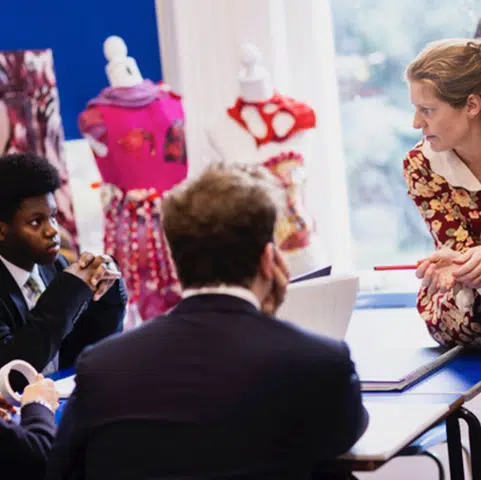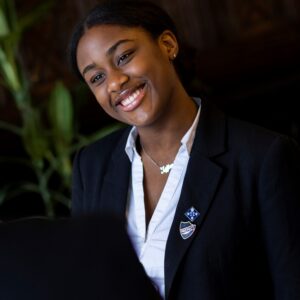Earlscliffe students usually study four A-level subjects (including their own language) as well as English for Academic Purposes (EAP).
The subjects detailed below have been strategically selected as those most readily accepted by the UK’s best universities.
A-level subjects usually offered
| Art | History | Chinese |
| Biology | Mathematics | French |
| Business | Further Mathematics | German |
| Chemistry | Photography | Italian |
| Economics | Physics | Japanese |
| English Literature | Politics | Portuguese |
| Geography | Psychology | Russian |
| Spanish |
What our students say
“Of course, Earlscliffe’s small class size, second-home feel and wonderful community were big factors in my decision, but nothing was as meaningful and powerful to me as the mentorship I received.”
“The study at Earlscliffe certainly paved my way to UCL and taught me the self-learning ability which is essential at university. You’re NOT going to regret it.”
“My favourite thing is the atmosphere in the school; everyone shows interest in everything you are doing. Teachers, students and staff will always push you to be involved in activities, sport and events. Everyone works so hard to make you feel that you belong here.”
“The teachers are very special at Earlscliffe. During my time here, they were always making sure that I understood everything, that I pushed myself to the next level and they always asked me if I could do more. I wouldn’t have achieved the results I did if it wasn’t for them.”
“Moving to Earlscliffe proved to be one of the most important decisions in my life. The support I received from everyone at Earlscliffe was second to none. From choosing my A-level subjects to selecting university courses I felt that I was guided by true professionals with many years of experience. I would tell anyone, without any doubt, that Earlscliffe is a great place to develop skills that are vital for being successful at university and beyond.”
“I immediately felt at home when I arrived at Earlscliffe. The staff were so warm and welcoming, and the teachers made sure that I always pushed myself to achieve the best possible results. I always wanted to study Medicine, but was unsure of how to go about applying, but the UCAS support I received at Earlscliffe ensured that I had an array of options, and I could make the best choices for my future.”
“Boarding at Earlscliffe is about community. It feels like you have 16 best friends or 16 sisters who you can just hang out with. People help each other and if you’re in need there is always someone to help. Either with schoolwork, or with settling in. It’s a family here.”







